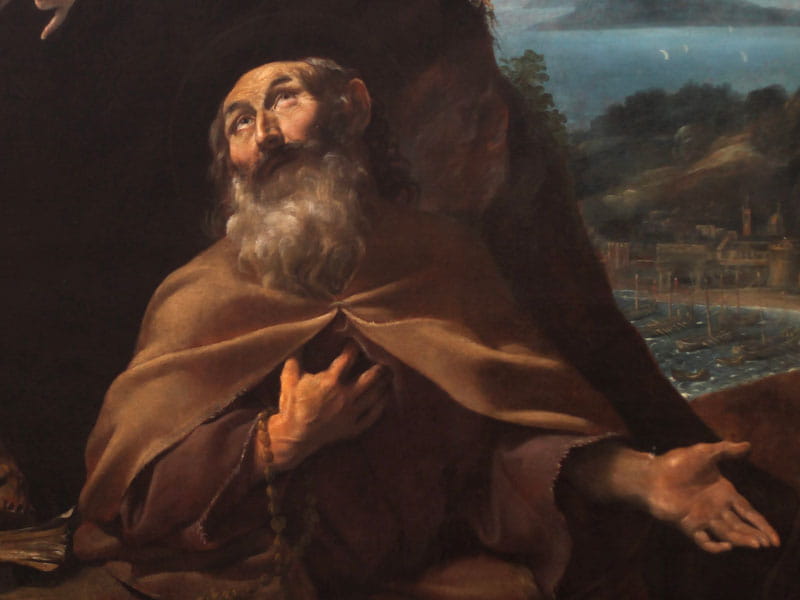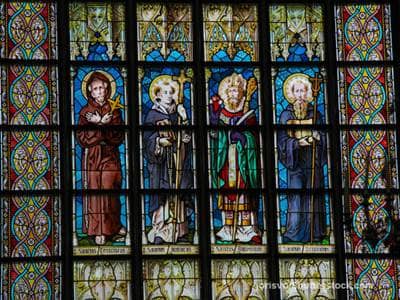St. Conrad of Piacenza (1290-1350)

Born of a noble family in northern Italy, Conrad as a young man married Euphrosyne, daughter of a nobleman.
One day while hunting he ordered attendants to set fire to some brush in order to flush out the game. The fire spread to nearby fields and to a large forest. Conrad fled. An innocent peasant was imprisoned, tortured to confess and condemned to death. Conrad confessed his guilt, saved the man’s life and paid for the damaged property.
Soon after this event, Conrad and his wife agreed to separate: she to a Poor Clare monastery and he to a group of hermits following the Third Order Rule. His reputation for holiness, however, spread quickly. Since his many visitors destroyed his solitude, Conrad went to a more remote spot in Sicily where he lived 36 years as a hermit, praying for himself and for the rest of the world.
Prayer and penance were his answer to the temptations that beset him. Conrad died kneeling before a crucifix. He was canonized in 1625.
-
St. John Francis Regis (1597-1640)
-
Blessed Adolph Kolping (1813-1865)
-
St. Bonaventure (1221-1274)
-
St. Agatha (d. 251?)
-
Blessed Emmanuel Ruiz and Companions (1804-1860)
-
St. Gregory Grassi and Companions (d. 1900)
-
St. Agnes (d. 258?)
-
Sts. John Jones and John Wall (c. 1530-1598; 1620-1679)
-
St. Adrian of Canterbury (d. 710)
-
Servant of God Francis Garces and Companions (c. 1781)


